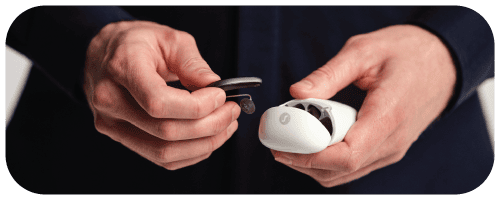Free testing, free trials, free advice. Your first step is now no-risk and free
From the moment you choose Maria Brown Hearing Clinic, we remove the barriers and risk associated with taking action on hearing loss.


Hear what our clients have to say
Hear from some of the thousands of Tasmanian's who are now benefitting from Australia's only guaranteed no-risk hearing care.
Everything we do is about helping our clients
Over 20 years ago Maria Brown was working for an ENT surgeon and wondering if there was a better way to deliver hearing care to her clients. This lead to the start of a new chapter for hearing care that has now been serving Tasmanians for over 20 years.

Your trusted hearing advisor with nearly 30 years experience
Have a question?







